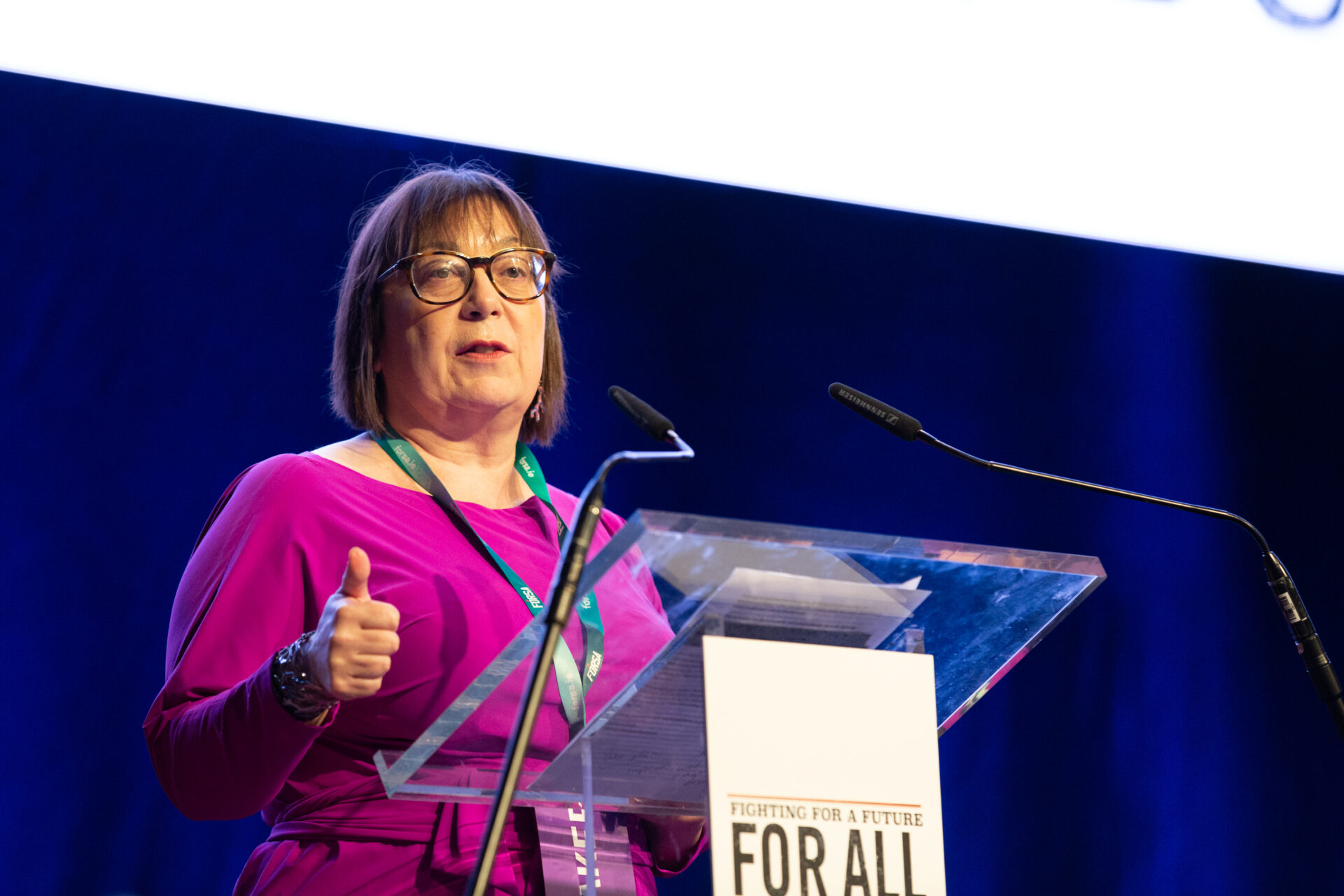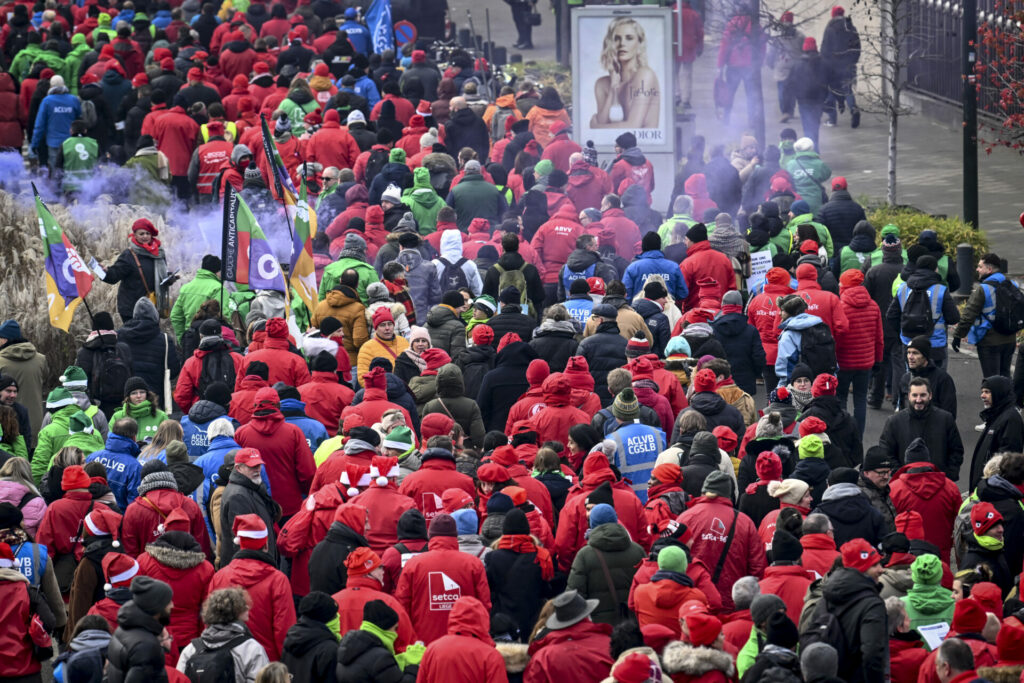The head of Europe's largest trade union organisation has issued a blistering attack on EU political and business leaders, arguing that current policy measures are proving insufficient to address – and in some cases are even exacerbating – the bloc's growing social and economic crises.
In an exclusive interview with The Brussels Times, European Trade Union Confederation (ETUC) General Secretary Esther Lynch also warned that the confluence of corporate greed and tight EU fiscal and monetary policies have led to a "growing sense of injustice and unfairness" among workers.
She also noted that they have triggered strikes by groups "who wouldn't traditionally undertake industrial action", such as nurses and teachers.
"The system is broken," Lynch said. "The consequences of the financial crisis, followed by the Covid-19 pandemic, followed by interest rate increases, mean that workers have no savings to fall back on. In many cases they are in considerable debt."
"So, the idea that unions will stand by and do nothing when people are struggling so severely – it's just not realistic," she added.
The trade union leader's warning comes as a large-scale European demonstration against austerity measures is taking place in Brussels on Tuesday, organised by the ETUC together with other Belgian confederations.
Inflated profits
As the number of crises pile up, a particular emphasis was placed by Lynch on how soaring corporate profits over the past two years have "fuelled a lot of the anger" among European workers.
Lynch's claims are borne out by the ETUC's own analyses. One study published last month found that average real wages (which account for inflation) in the EU fell by -0.7% in 2023, despite real profits having risen by 1.5%. Another report noted that nominal shareholder payouts increased by 14% last year, while wages grew by just 4.3%.

ETUC General Secretary Esther Lynch. Credit: ETUC / Flickr
Other studies have corroborated the ETUC's findings. Indeed, both the International Monetary Fund (IMF) and the European Central Bank (ECB) have concluded that corporate earnings have not only dramatically increased over the past year, but are actually the principal cause of Europe's current inflation crisis.
Given this, Lynch noted that it is "a bit inexplicable" why EU policymakers have (repeatedly) opted to impose "simplistic" and "counterproductive" interest rate hikes instead of windfall taxes after Russia's invasion of Ukraine last year sent prices soaring.
"Member States need the resources to help the most vulnerable," she said. "But they also seem to be very fearful of companies saying, 'Well, if you tax us we'll leave.' And that's why a Europe-wide response will be better."
'A social justice emergency'
Lynch was also asked about a report published last month by the IMF, in which the fund argued that windfall taxes "should be avoided as they distort credit availability and costs", adding that "robust [capital] buffers are even more important at a time like the current one" where "risks remain substantial on the geopolitical front".
Lynch, however, was scathing about this purported justification – and even suggested that it was tantamount to a wilful misunderstanding.
"What we are calling for are windfall taxes," Lynch said. "It's not companies that are making usual profits. It's companies that are making exceptional profits on the back of the crisis and because of the measures taken to respond to it."
"It makes me very frustrated," she added. "It's almost like some very clever people go out of their way to deliberately misunderstand what's being called for. It's unjust. There can be no moral argument put forward that companies that make exceptional windfall profits shouldn't pay an increased amount of tax, especially at a time when we're asking the most vulnerable to dig deep and go hungrier and go colder. We're facing a social justice emergency."
A new European 'vision'
In addition to Europe-wide windfall taxes, Lynch called on EU policymakers to further entrench the right to collective bargaining throughout the bloc.
She also praised the recent efforts by unions across Europe to defend labour rights and strengthen worker solidarity.
"Unions are responding by organising demonstrations, organising industrial action, by doing everything that they can to make sure that workers get pay increases," she said.
Finally, Lynch called for European policymakers to adopt more "visionary thinking" about how to deal with present challenges and "properly recognise the scale of the problem facing Member States".
She also stressed that companies must be "willing to pay their fair share" rather than "holding to as much as they possibly can so that they can do better than everyone else".
"We have to figure out how to build a Europe that is a great place to work, to live, to grow old; where, if you get sick, you'll receive good healthcare," she said. "That should be the vision of Europe. Not somewhere where you can simply pay the least amount of tax."

